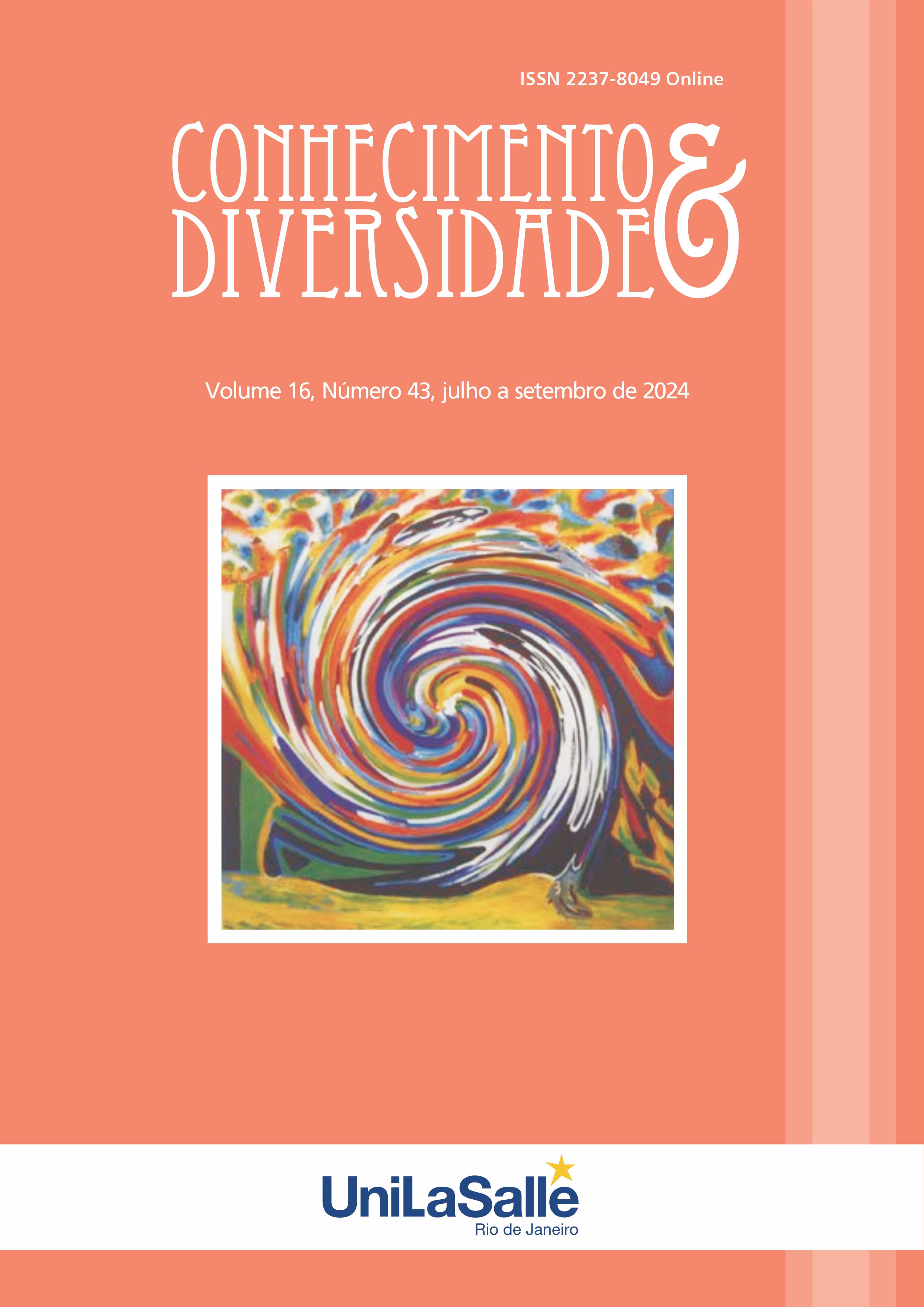ADAPTAÇÃO SOCIOCULTURAL DO NÍVEL DE ESCOLARIDADE E DO SEU DESENVOLVIMENTO PROFISSIONAL
VERTENTE PEDAGÓGICA
DOI:
https://doi.org/10.18316/rcd.v16i43.11847Palavras-chave:
ambiente educativo, adaptação social, apoio pedagógico, digitalização, comunicaçõesResumo
O artigo revela as especificidades da adaptação social dos alunos no planejamento da carreira profissional. Foram determinados os componentes e indicadores do nível de adaptação social dos alunos no processo de planeamento da carreira profissional. Foi teoricamente fundamentado e desenvolvido um modelo de apoio pedagógico ao processo de adaptação social dos alunos no planeamento da carreira profissional. Foi testado experimentalmente um modelo de apoio pedagógico ao processo de adaptação social dos alunos no planejamento da carreira profissional.
Referências
CASAS, J.P., Educating the Digital Generation: Exploring the Role of Teacher Education to Prepare for Digital Learners. Journal of Teacher Education and Professional Development, 3(1), 25-39, 2020.
GARDNER, H. The App Generation: How Today's Youth Navigate Identity, Intimacy, and Imagination in a Digital World. Yale University Press, 2013.
PRENSKY, M. Teaching Digital Natives: Partnering for Real Learning. Corwin Press, 2010.
IASECHKO, S., PEREIASLAVSKA, S., SMAHINA, O., LUPEI, N., MAMCHUR, L., & TKACHOVA, O. Artificial Intelligence in the Modern Educational Space: Problems and Prospects. IJCSNS International Journal of Computer Science and Network Security, 22(6), 25-32, 2022.
TSILMAK, O., IASECHKO, S., POPLAVSKA, M., MOTLYAKH, O., & KABANETS, O. Modern Innovative Forms of Teaching Law at Other Schools in Ukraine. Revista Eduweb, 16(4), 166-177, 2022.
TAPSCOTT, D. Growing Up Digital: The Rise of the Net Generation. McGraw-Hill, 1998.
TURKLE, S. Alone Together: Why We Expect More from Technology and Less from Each Other. Basic Books, 2011.
MILLS, K. A. Literacy Theories for the Digital Age: Social, Critical, Multimodal, Spatial, Material and Sensory Lenses. Multilingual Matters, 2016.
THOMAS, D., & BROWN, J.S. A New Culture of Learning: Cultivating the Imagination for a World of Constant Change. CreateSpace Independent Publishing Platform, 2011.
WARSCHAUER, M. Technology and Social Inclusion: Rethinking the Digital Divide. MIT Press, 2004.
JENKINS, H., ET AL. Confronting the Challenges of Participatory Culture: Media Education for the 21st Century, MIT Press, 2009.
EUROPEAN COMMISSION. Key competencies for lifelong learning. DOI: 10.2766/569540, 2019.
Downloads
Publicado
Edição
Seção
Licença
Copyright (c) 2024 Olha Svyrydiuk, Inna Humeniuk , Nataliia Ababilova, Oleksii Klochko , Iryna x Iryna Hrebnieva

Este trabalho está licenciado sob uma licença Creative Commons Attribution 4.0 International License.
Conforme recomendado pelo o Public Knowledge Project, a RCD adota para seus artigos uma licença CREATIVE COMMONS: Atribuição CC BY 4.0.
Esta licença permite que outros distribuam, remixem, adaptem e construam sobre o seu trabalho, mesmo comercialmente, desde que lhe dêem crédito pela criação original.
Esta é a licença mais adequada oferecida.
Recomendado para a máxima divulgação e uso de materiais licenciados.



